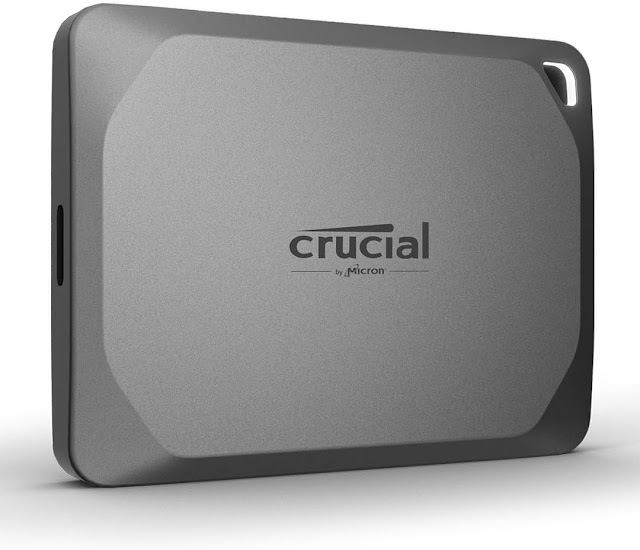Crucial filling the void left by SanDisk
Since there's a bit of a void left in the SSD world with SanDisk's terrible response to their drive failures the options of SSDs for asset delivery were a bit limited but in somewhat perfect timing Crucial, a long trusted brand by OEM NAND flash maker Mircon has released the X9 Pro and X10 Pro.
Both are NVME based drives with the the main difference being USB 3.2 Gen 2 (10Gbps) for the X9 Pro and USB 3.2 Gen 2x2 (20Gbps) for the X10 Pro.
Looking the chart provided by Micro below, It seems they have dealt with some of the shortcomings of the previous X8 model. Below, you can see more real world performance rather than the deceptive "up-to" speed spec that most brands latch onto that I've written about before.
 |
| Source: Micron |
While you should always take performance numbers provided by the manufacturer with a grain of salt. The performance is echoed in AnadTech's in depth review of this the X9 Pro. In their testing, it was able to maintain respectable write speeds while writing to 90% of the capacity. Not choking on cache and dropping speed over this test is great to see.
 | ||
| Source: AnandTech It even bested the performance the Samsung T7 Shield in a more random test of writing "18.86 GB of Photos and Documents over 7627 files in 382 sub-folders" which is a more realistic test of a still photography workflow.
|
There's also the X10 Pro, however at this point in time it's just not worth purchasing if you use any of Apple's current lineup of computers since they don't support USB 3.2 Gen 2x2 (20Gbps) and are limited to 10Gbps over USB. You can read more about this in my previous post about USB overhead. This isn't the case if using a Thunderbolt drive but for client delivery drives that becomes prohibitively expensive.
 |
| Source: Micron |
It's also great to see these drives available from various vendors or directly from Crucial making it easy to snag them last minute. The SSD market has become more consolidated over the years but it's nice to see more companies focusing on professionals and not just data center or consumers.



